
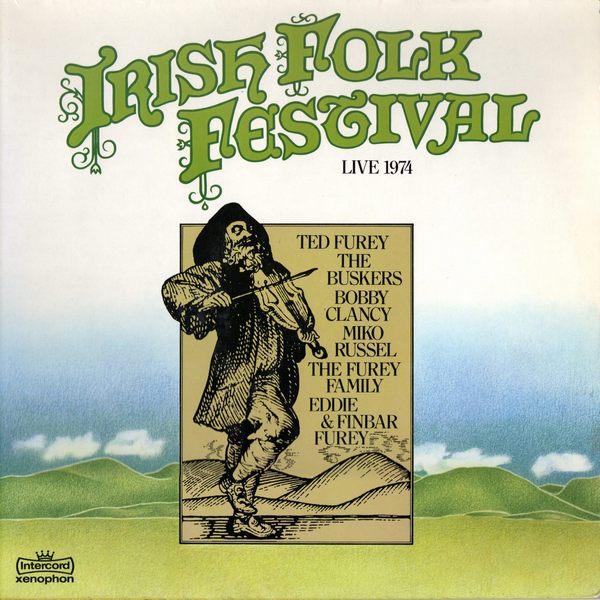 |
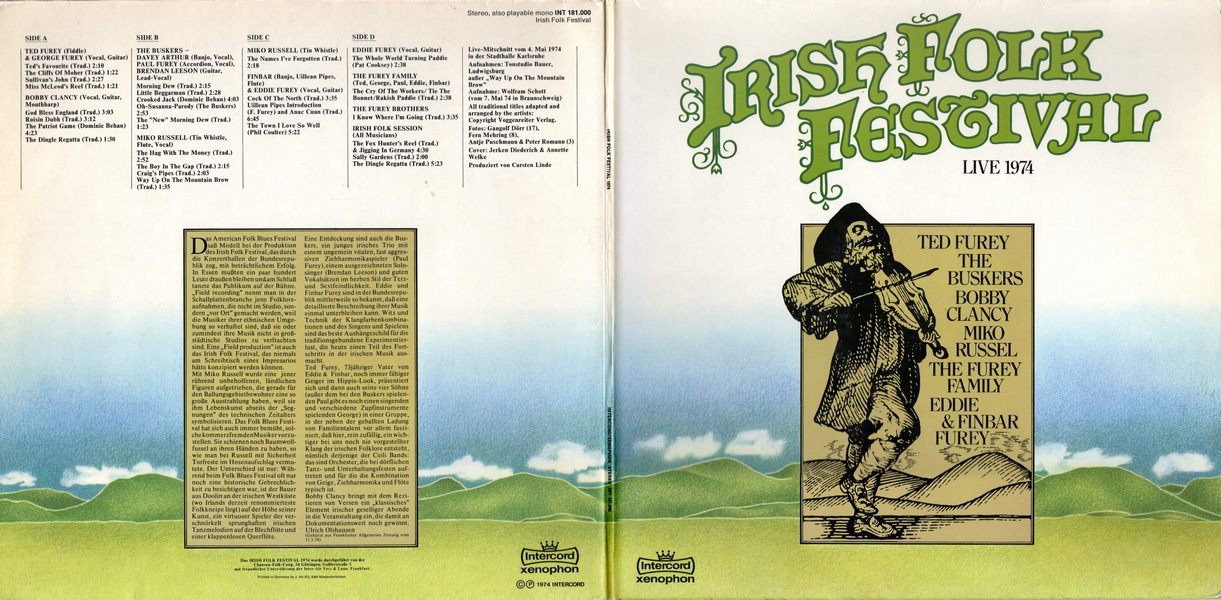
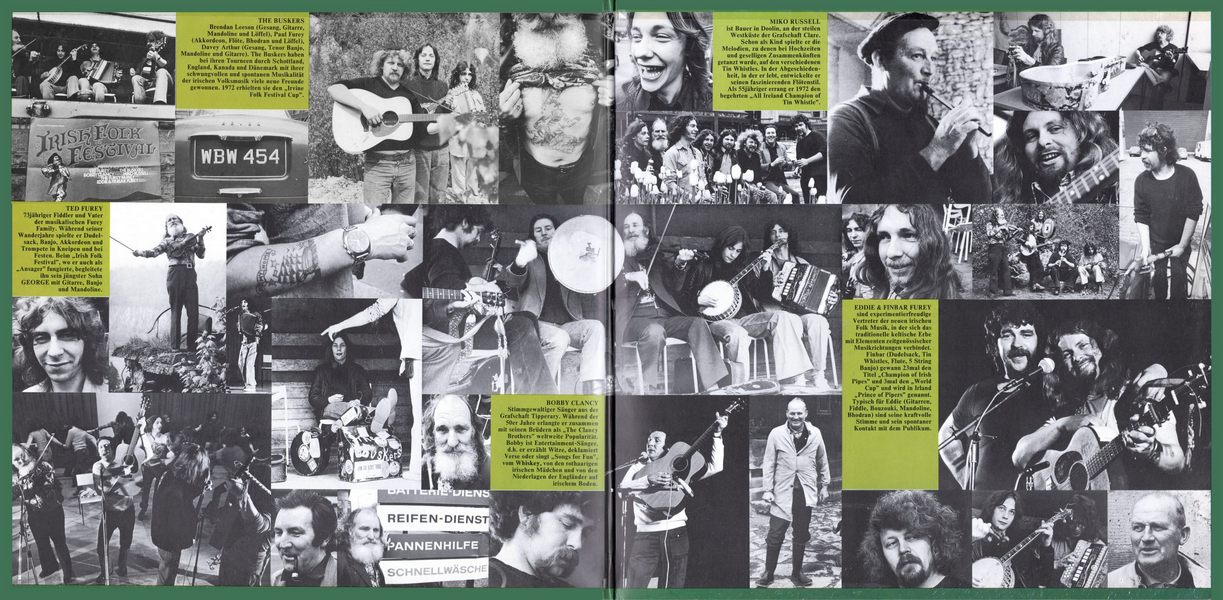
|
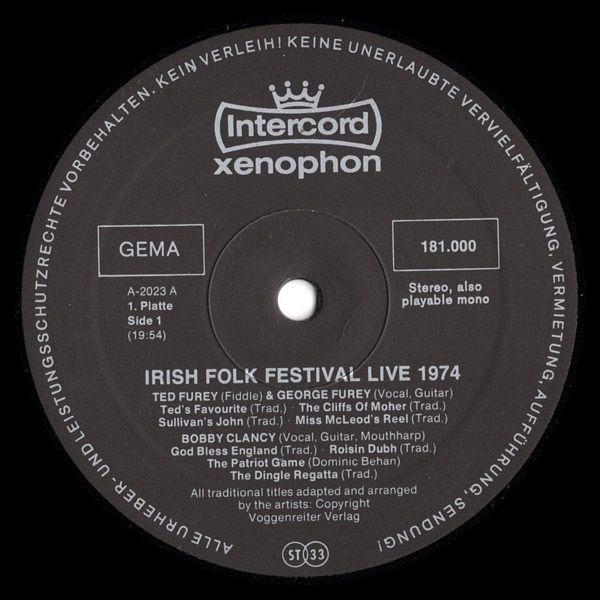
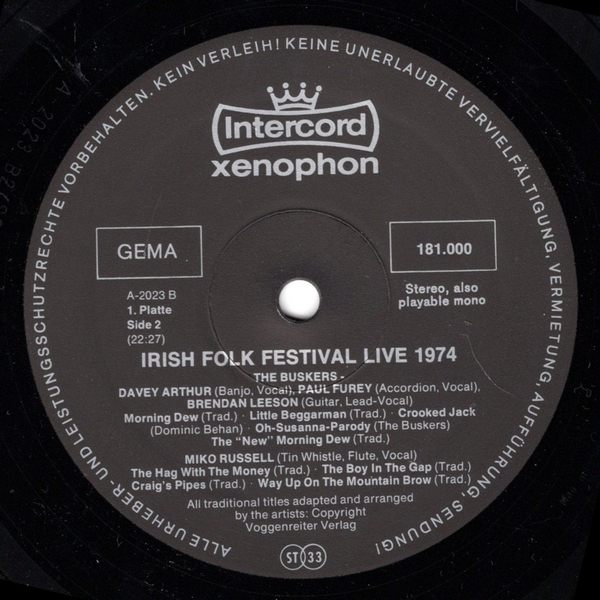
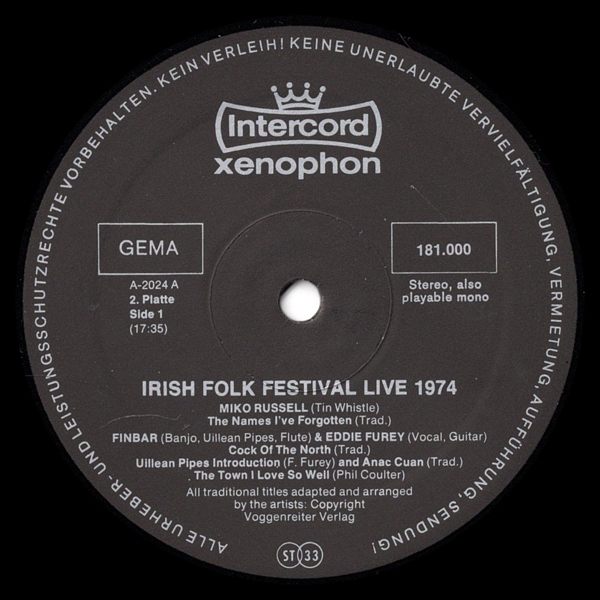
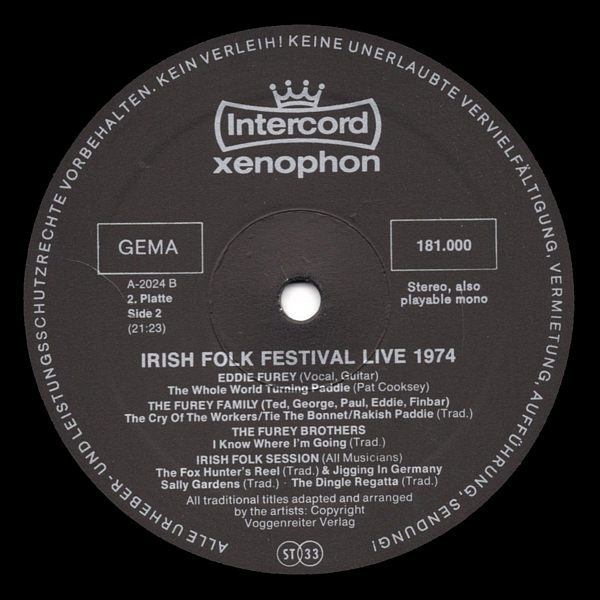
|
The American Folk Blues Festival sat as a model during production of the Irish Folk Festival, which roamed the concert halls of the Federal Republic, with considerable success.
In Essen a few hundred people had to stay outside and in the end the audience danced on the stage. "Field recording" is what the record industry calls those folk recordings that are not made in the studio but "on site" because the musicians are so attached to their ethnic environment that they, or at least their music, cannot be shipped to big city studios. Another field production is the Irish Folk Festival, which could never have been conceived at the desk of an impresario.
With Miko Russell, one of those touchingly awkward, rural figures was found who has such a great charisma for the residents of urban areas because they symbolize an art of living away from the "blessings" of the technological age. The Folk Blues Festival has always tried to introduce such non-commercial musicians. They appeared to still have cotton fuzz on their hands, just as Russell's pants cuffs were certainly suspected to be peat residue. The only difference is that while the Folk Blues Festival was often just a historical frailty to be seen, the farmer from Doolin on Ireland's west coast (where Ireland's most renowned folk pub is currently located) is at the height of his art, a virtuoso player of the ornate, erratic Irish Dance melodies on the tin flute and a keyless flute.
Another discovery is the Buskers, a young Irish trio with an extremely energetic, almost aggressive accordion player (Paul Furey), an excellent solo singer (Brendan Leeson) and good vocal settings in the harsh style of thirds and sexts. Eddie and Finbar Furey are now so well known in Germany that a detailed description of their music can be omitted. The wit and technique of timbre combinations and singing and playing are the best advertisement for the tradition-bound spirit of experimentation that is part of the progress in Irish music today.
Ted Furey, 73-year-old father of Eddie & Finbar, still a capable violinist with a hippie look, presents himself and then his four sons (besides Paul, who plays with the Buskers, there is also a singing George who plays various plucked instruments) in a group, in which, in addition to the concentrated load of family talent, what is particularly fascinating is that, purely by chance, an important sound of Irish folklore emerges here that we have never imagined before, namely that of the Ceili Bands: these are orchestras that perform at village dance and entertainment festivals. and for which the combination of violin, accordion and flute is typical.
Bobby Clancy brings a 'classic' element of Irish social evenings to the event by reciting verse, making the event even more documentary.
Ulrich Olshausen (Abridged from the Frankfurter Allgemeine Zeitung of May 11, 1974)
Ted Furey — 73 year old fiddler and father of the musical Furey Family. During his years of travel he played bagpipes, banjo, accordion and trumpet in pubs and at festivals. At the Irish Folk Festival, where he also acted as announcer, his youngest son George accompanied him on guitar, banjo and mandolin.
The Buskers — Brendan Leeson (vocals, guitar, mandolin and spoons), Paul Furey (accordion, flute, bodhrán and spoons), Davey Arthur (vocals, tenor banjo, mandolin and guitar). The Buskers have made many new friends on their tours of Scotland, England, Canada and Denmark with their upbeat and spontaneous musicality of Irish folk music. In 1972 they received the Irvine Folk Festival Cup.
Bobby Clancy — Powerful vocalist from County Tipperary. During the 1950's he and his brothers gained worldwide popularity as "The Clancy Brothers". Bobby is an entertainment singer, which means he tells jokes, declaims verses or sings "Songs for Fun", about whiskey, about the red-haired Irish girls and about the defeats of the English on Irish soil.
Miko Russell is a farmer in Doolin, on the steep west coast of County Clare. As a child, he played the various tin whistles to the tunes danced to at weddings and social gatherings. In the seclusion in which he lives, he developed his fascinating flute style. In 1972, aged 55, he won the coveted All Ireland Champion of Tin Whistle.
Eddie & Finbar Furey are experimental representatives of new Irish folk music, in which the traditional Celtic heritage is combined with elements of contemporary music styles. Finbar (bagpipes, tin whistles, flute, 5 string banjo) won 23 Champion of Irish Pipes and 3 World Cup titles and is nicknamed the Prince of Pipers in Ireland. Typical for Eddie (guitars, fiddle, bouzouki, mandolin, bodhrán) are his powerful voice and his spontaneous contact with the audience.
Original German translated via Google Translate.